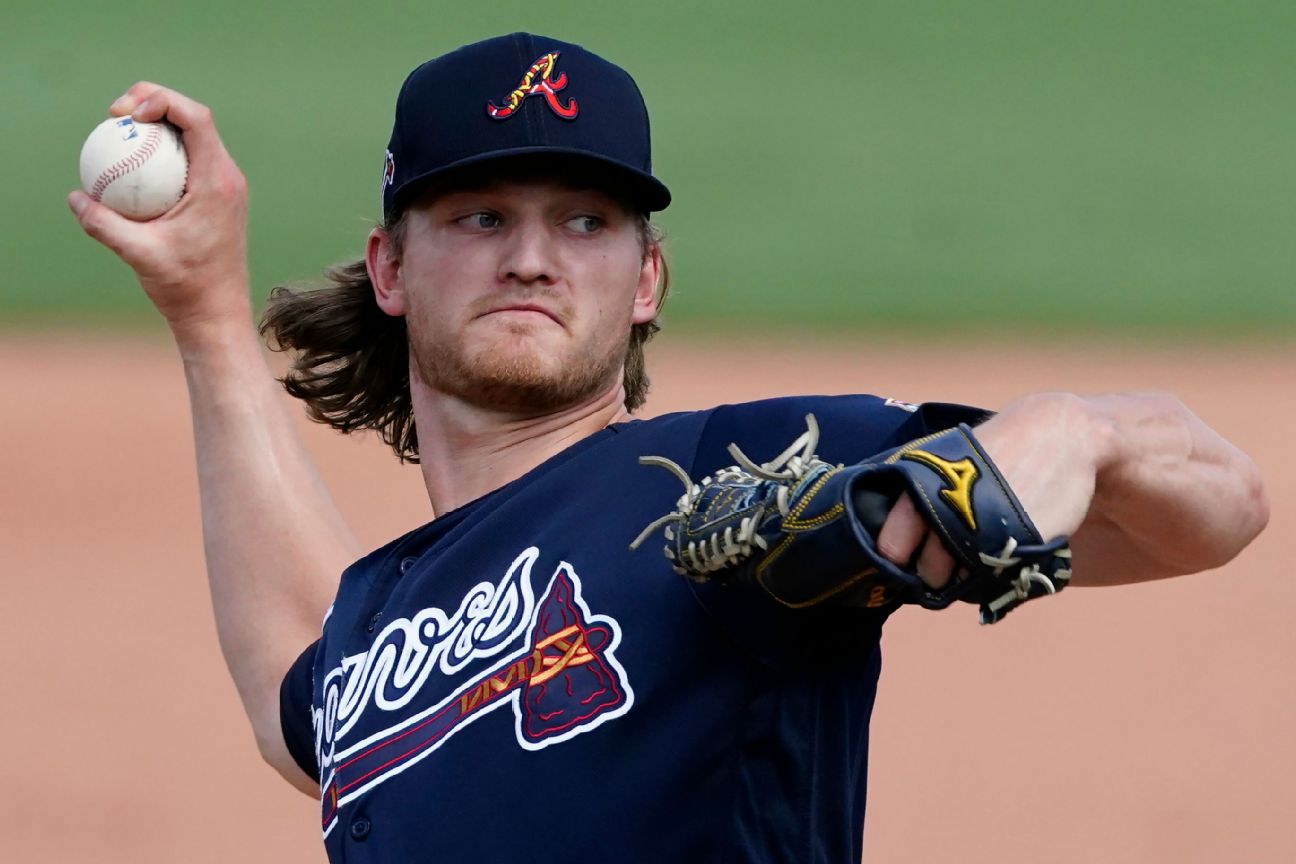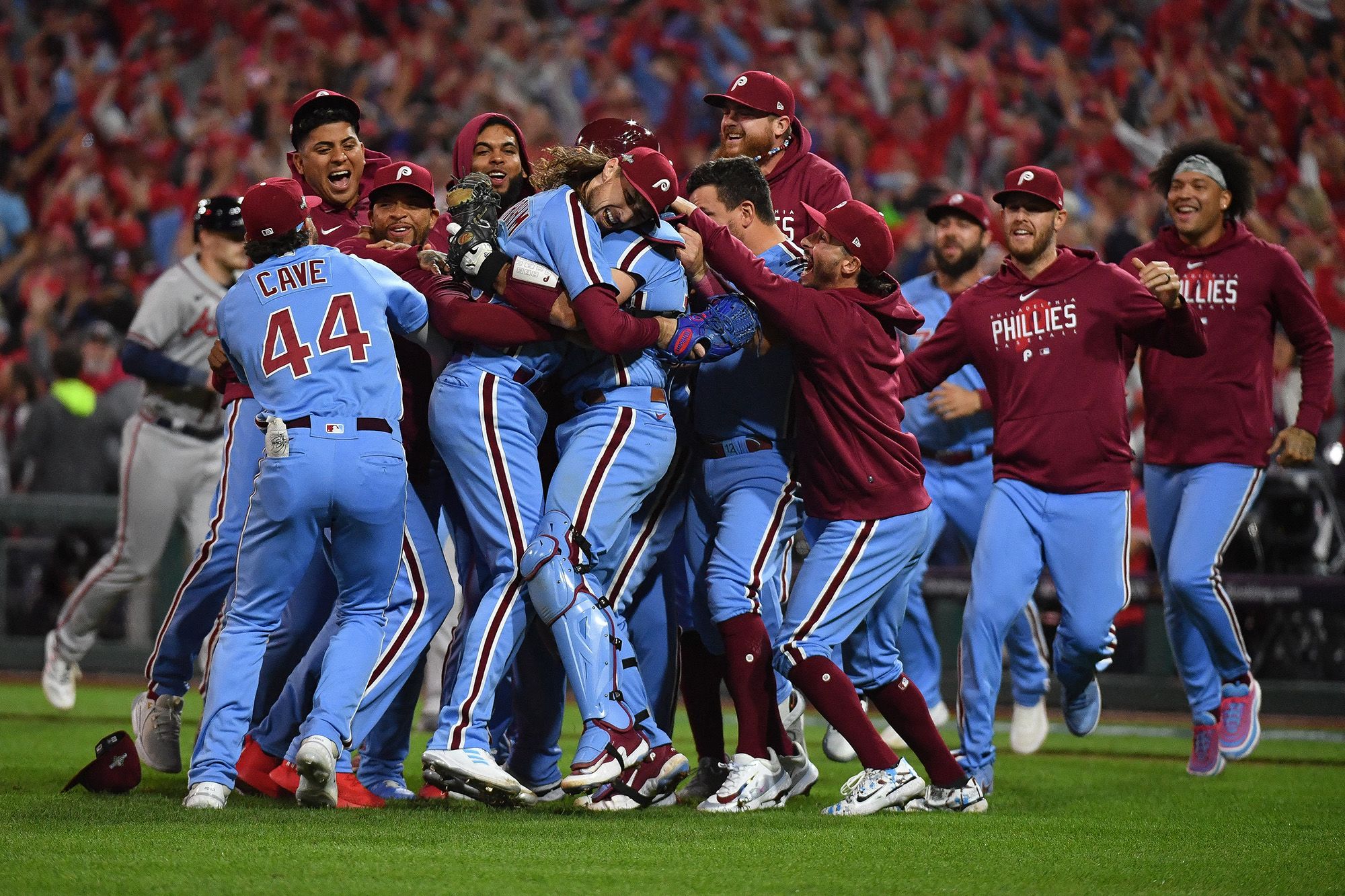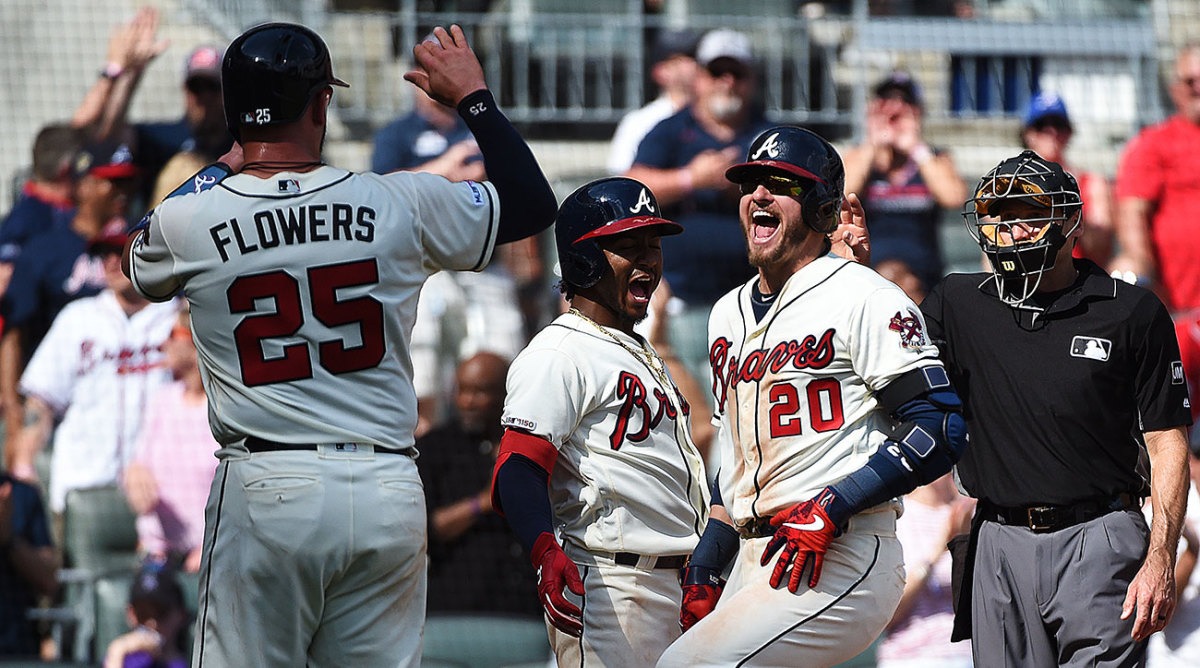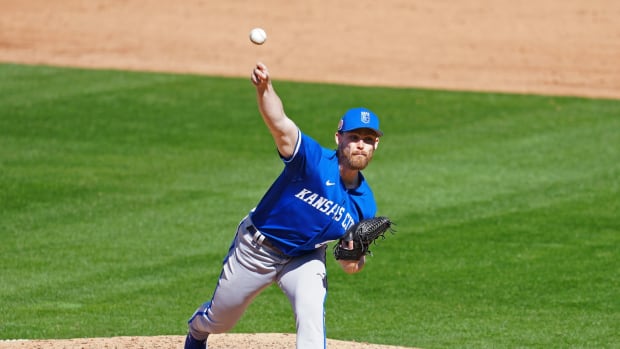
Let us just say that Michael Soroka and the Atlanta Braves were not as happy with the outcome as they had hoped.
Trying to work his way back to the major leagues after two Achilles tears (necessitating three surgeries) kept him away for almost three full years, Soroka’s start to spring training was delayed by a hamstring strain suffered just days before pitchers and catchers reported in February.
Soroka had spent the previous season with AAA Gwinnett before being promoted to the major leagues in late May. He had kicked off Atlanta’s two west coast swing games against Oakland and Arizona on the first night.
During the summer, he alternated between Gwinnett and Atlanta; there were rumors that Atlanta was tampering with his service time to extend its contractual control by one year.
That strategy eventually failed, as Soroka’s season ended on the injured list due to a late-season injury, pushing him over the five-year service time requirement.Soroka finished with a 2-2 record in seven appearances for Atlanta (six starts), with a 6.40 ERA in 32.1 innings pitched with 29 strikeouts (8.1 K/9) and 12 walks (3.3 BB/9).
In Gwinnett, he went 4-4 with a 3.41 ERA in seventeen starts, striking out 9.5 batters per nine innings.
In 32.1 innings, Soroka let up nine home runs, or a strikeout rate of 2.5 HR/9. He also struggled against home runs in the major leagues. To put things in perspective, he allowed just 0.7 home runs per nine innings during his first season in 2019, which led the National League.
From a legal perspective, Soroka’s first arbitration year ended with a $2.8 million settlement agreed upon by Atlanta and Soroka.
In 2022 and 2023, the parties also agreed to re-up for the same amount, with Soroka recuperating in the interim.
In the last year of arbitration, he is only anticipated to get a small pay bump of up to $3 million, according to MLB Trade Rumors, which has a long history of making accurate predictions about these things.
How come Atlanta wouldn’t tender Soroka?
The primary factor is well-being. After spending the entire season on the 60-day disabled list due to a right forearm ailment that caused numbness in his fingers, it’s unclear what the problem is and whether it will prevent him from playing in 2024.
In addition to the whole “pending free agent” situation, he now has five years of service time. A player with five or more years of service time has the option to decline a minor league assignment, becoming a free agent.
The same thing happened to Yonny Chirinos while he was with Tampa Bay: a few days before he completed five years of service, Tampa Bay declared him a free agent, and Atlanta claimed him off waivers.
It also explains why Chirinos was able to play for a long time in Atlanta before an injury put him on the injured list because he had the option to choose free agency if they were to option him to the minors.
In fact, Atlanta finds itself in a similar predicament concerning Soroka. If the team tries to move him to AAA, he can choose free agency at any moment with five years of service time remaining, which will allow him to leave Atlanta without being paid. Aside from that, it is unclear if Soroka’s “stuff” has gotten better enough to keep him in the rotation for the entire season based on his regular season results.
Because of that, it’s in Atlanta’s best interest to non-tender Soroka and try to re-sign him to a minor league deal with an invite to spring training.
The minor league agreement means that he would start in Gwinnett if his pitching is not good enough to earn a spot on the Opening Day roster. However, he could still be called up if he made the necessary progress or if the Braves experienced multiple injuries in their starting rotation, which is something that can happen at any time during the season.
But that’s a risky plan, right?
It absolutely is, yeah. If he keeps improving and reaches the “Maple Maddux” form he displayed before the 2020 Achilles tear, I think a few teams would offer him a regular major league contract and a rotation spot.
Therefore, even though a number of national and Atlanta media outlets have projected that Soroka will not be tendered, I believe he will either be presented with a 2024 contract that includes a club option or Atlanta will take him to arbitration.
Retain him, stick him in the rotation out of spring, and if it’s not working, Atlanta can always move him for a minor bullpen piece or prospect during the regular season. Soroka’s return to his 2019 All-Star form, where he went 13-4 with a 2.68 ERA and finished second in the NL Rookie of the Year competition, is something you have to take if it means the Braves will have as many quality rotation options as possible going forward, especially with Kyle Wright already out for 2024.
But that’s not the big thing here.




